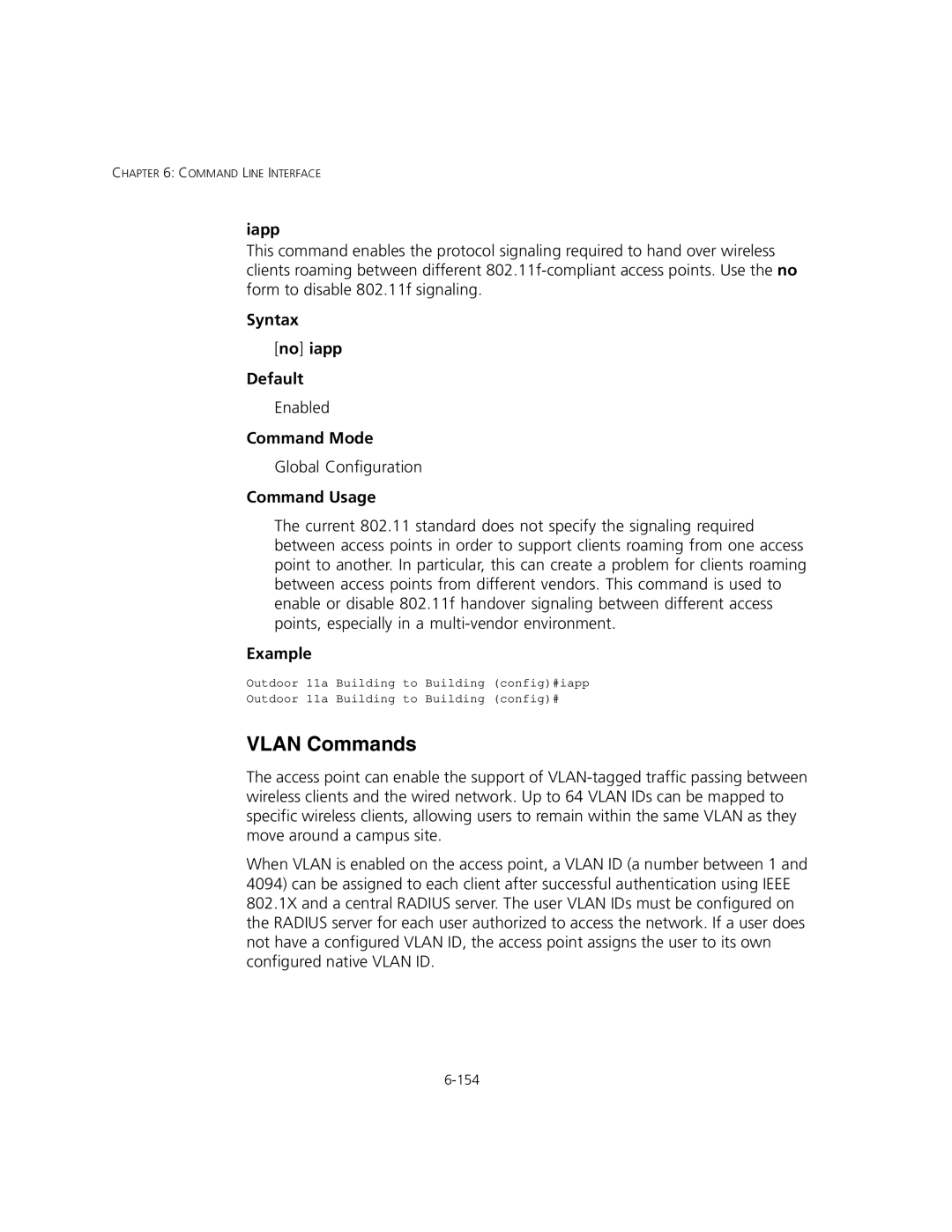CHAPTER 6: COMMAND LINE INTERFACE
iapp
This command enables the protocol signaling required to hand over wireless clients roaming between different
Syntax
[no] iapp
Default
Enabled
Command Mode
Global Configuration
Command Usage
The current 802.11 standard does not specify the signaling required between access points in order to support clients roaming from one access point to another. In particular, this can create a problem for clients roaming between access points from different vendors. This command is used to enable or disable 802.11f handover signaling between different access points, especially in a
Example
Outdoor 11a Building to Building (config)#iapp
Outdoor 11a Building to Building (config)#
VLAN Commands
The access point can enable the support of
When VLAN is enabled on the access point, a VLAN ID (a number between 1 and 4094) can be assigned to each client after successful authentication using IEEE 802.1X and a central RADIUS server. The user VLAN IDs must be configured on the RADIUS server for each user authorized to access the network. If a user does not have a configured VLAN ID, the access point assigns the user to its own configured native VLAN ID.
